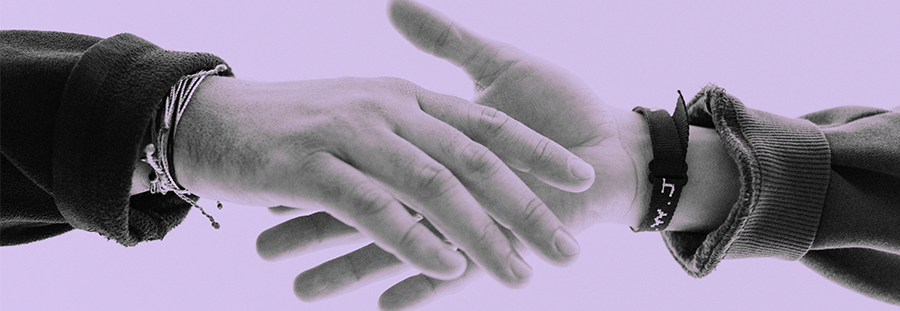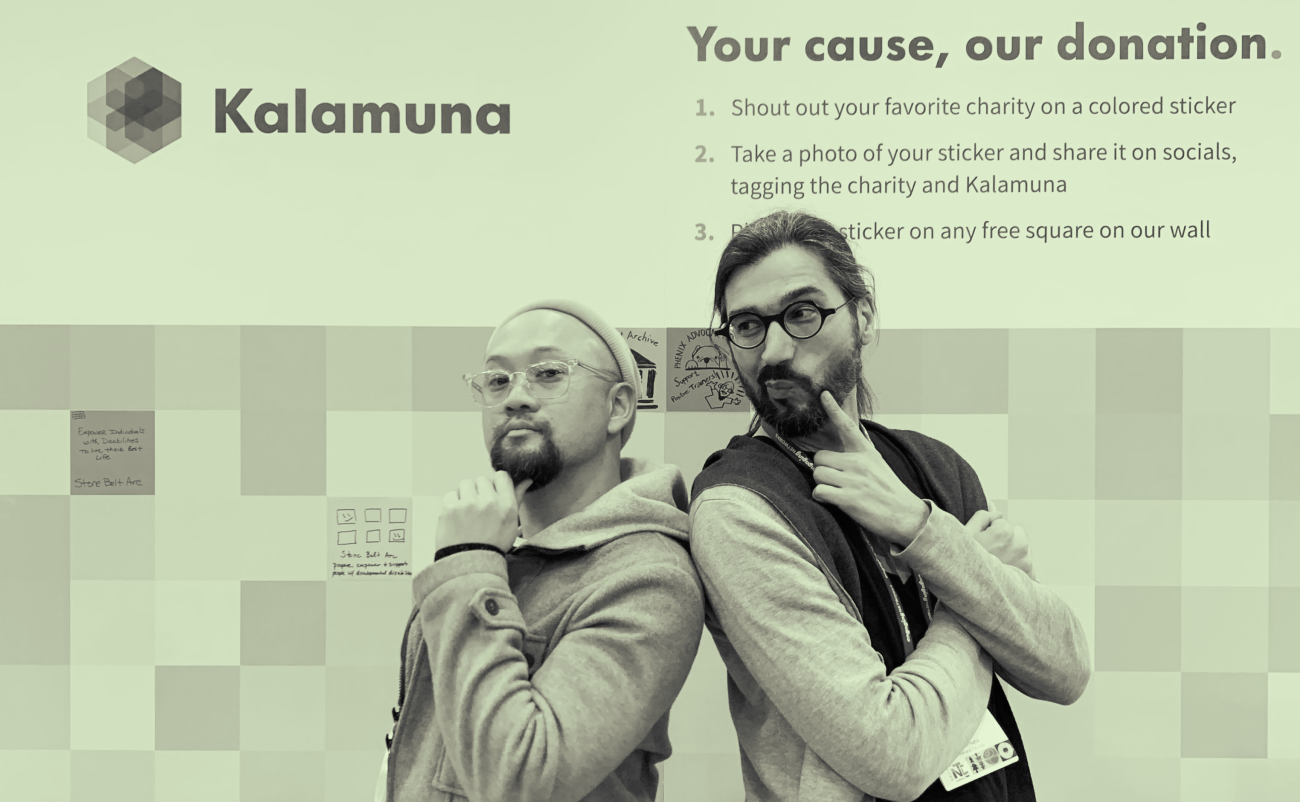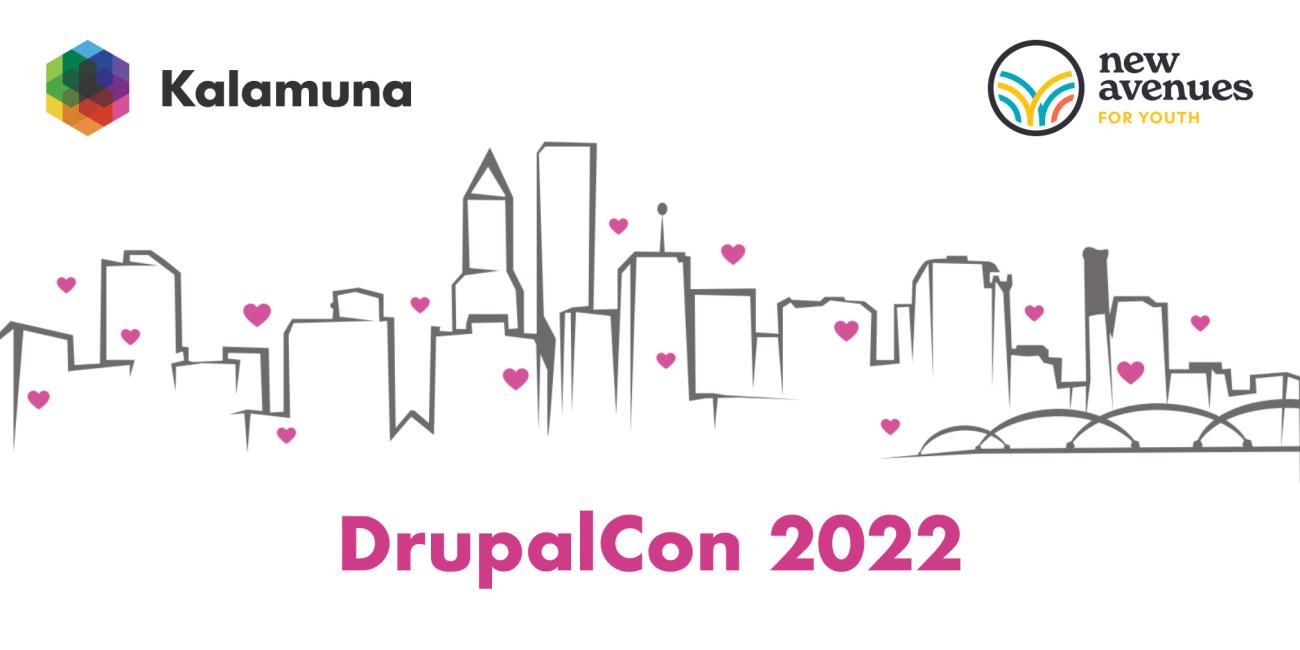
Giving Tuesday Is Here. What Am I Supposed To Do With That?
Share
Even as humanity’s problems feel overwhelming and insurmountable, Giving Tuesday calls upon us to exercise hope for a better future through donating, volunteering, and advocating for nonprofits. I get the drift that Giving Tuesday makes me a better person, builds communities, serves society, and reinforces democracy. It sounds constructive and worthwhile. So why am I having such a hard time with it?
First of all, I know Giving Tuesday is a made-up day. It started in 2012 as a counterweight to the consumerism of Black Friday and Cyber Monday. Even so, its intentionally constructed origins make me suspicious. It’s almost as if someone conceived of it to remind me to make tax-deductible donations before the year ends.
I’m an average guy. I don’t have money to burn, I don’t have time to spend, and I don’t particularly enjoy feeling nudged about what I should do with either. But I’ve also volunteered at a shelter every week for a decade and have donated plenty of art and money over the years—just not on Giving Tuesday. All the same, I’m trying to stop avoiding an opportunity to do something “nice” and understand what Giving Tuesday is about. So, if you’ve ever thought, “bah, Giving Tuesday—what am I supposed to do with that?” this blog is for you.
Why’s it so hard to feel generous?
As I watch inflation rise and global economies teeter, it feels more difficult to loosen my grip on my resources, much less donate them to causes I care about. And apparently, it’s not just me: In the past year, there’s been a 5.6% decrease in donors and a 19% decrease in volunteers in the nonprofit sector. It seems we hoard ahead of shortages and draw our circle of concern tighter. And time, our most precious resource, is also a finite one.
Moreover, I find myself, and our society, indulging in seductive language that privileges personal grievances. I’m not proud to admit it, but I can slip into a scarcity mindset that assumes others are illegitimately gaining access to a life that, by right, should be mine. I fear being left out and left behind. “Everyone else is getting theirs,” I think. “I need to get mine.” Or, “I don’t have X because Y was taken from me.” The “I” here sometimes includes my family or cultural groups with which I identify, and which I privilege at the expense of others.
This is my state of mind. It isn’t generous. It’s an attitude that creates a me-against-the-world framework, which expands to “me-vs-them.” It puts me in competition rather than in collaboration. It’s certainly not the language of equity and inclusion. I’d even go so far as to say it’s a language that enables fascism to spread, fostering a misguided sense of victimhood that seeks out an “other” to blame—especially embarrassing for me because historically, my family and friends often get counted among that “other.”
Generosity exists as the antithesis of all of this. I recently read an article by Farra Trompeter in which she suggests nonprofits avoid competitive attitudes toward receiving donations by adopting a spirit of generosity instead. Why can’t we, as individuals, do the same? How can we believe that giving will benefit us?
Nonprofits serve me—and you—indirectly
If my neighbor’s house were on fire and firefighters required folks to form a line to pass down buckets of water, then I’d happily join. It wouldn’t be an act of generosity. It’d be my responsibility: I live here too.
Approximately 1.5 million nonprofits act as society’s metaphorical firefighters in the United States. Nonprofits represent the plurality of interests indicative of a democratic society and “have an obligation to represent their constituents’ needs to the government, media, and public at large.” They facilitate civic engagement and public advocacy, and they supplement government services—all necessary things to fortify a government by the people and for the people. Collectively, they contribute over a trillion dollars to the economy, account for 10% of jobs in the private sector, and constitute 5.7% of the country’s GDP.
And because a thriving nonprofit ecosystem represents the cacophony of a free nation’s concerns, it can act as a check against the threat of monoculture and even authoritarianism. Because we (still) live in a democratic society, there’s probably a nonprofit for every concern you might have (even ones with which I disagree.) If there isn’t, then you can start one. It’s a free country. You can start a nonprofit that works to preserve only green and blue baseball cards, rescue kittens from underneath Nevada overpasses, or pay for the living expenses of teachers fired for using critical race theory. By starting a nonprofit or supporting one, you’re reasserting our freedoms. Voting isn’t the only way we advance our values politically.
I’m not rich. Why should I be the one who gives?
Wealthy philanthropists have the power and money to make a difference, but do you think that, in general, they’re supporting causes that improve the lives of our most marginalized fellow humans? Do you think Jeff Bezos has given to the NAACP Legal Defense Fund? What about the Gay & Lesbian Alliance Against Defamation? If nonprofits are to represent the concerns of the huddled masses, then it's absurd to count on corporate billionaires to always act in our interest. I’m not rich, but I can always give a little and make some time to volunteer for issues that billionaires overlook.
Besides billionaires, governments also overlook important needs. Nonprofits step in to fill that void. Even with billions of dollars in aid from the US government to Ukraine, for example, UNICEF still needs to provide assistance to kids enduring the largest refugee crisis in Europe since World War II. Consequently, there’s a need for us to support organizations like UNICEF.
Some things to try
Now that you’re as sold on nonprofits as I am, you might be imagining your own generosity in action. Did you take out your wallet while reading this post? Even if you haven’t, but are warmer to Giving Tuesday than you were before you got this far, you might feel open to trying out a few generous or generous-adjacent things.
If you work for an organization that communicates to broad external audiences, you might somehow influence these communications to encourage charitable donations. For example, at Kalamuna, we’ve reoriented our conference booth presence into acts of philanthropy; people come up to our event booths because they see that by interacting with us, they’re donating money to causes they believe in.
Also, through your work, you might figure out how your organization can match employee charitable donations or donate pro bono work hours. I’m inspired by companies’ programs to match employee donations and sponsor volunteer hours. Kalamuna, a small company of 32 people, does some of these things, and we are always looking for ways to do more. An individual or a business doesn’t need to have a billionaire’s bank account to get involved and make an impact.
In the meantime, aside from volunteering and personal donations, you may have already made a habit of doing some of the things suggested below. For others, these might be new ideas. Either way, here are a couple of quick tips on how to help:
- Set aside money for recurring donations
- Start a fundraiser
- Advocate for a volunteer program at work
- Push for a donation matching program at work
- Put forward pro-bono work
- Recommend your workplace serve value-aligned clients
- Do work you can stand behind and believe in
- Put ideas in the air and a bug in the ear
- Be generous, which maybe just means practicing loving-kindness
- Be the one that shifts the culture and passes water toward a house on fire
A better world through passed water buckets
The things we care about stretch beyond a single day, but a single day can propel your convictions forward. It doesn’t always take the form of donations or volunteering—but maybe this time, it does. It’s not hyperbolic to say that you’d not only be contributing to the cause you’re invested in but also making yourself a better person (if that sort of thing matters to you).
Check out these organizations that are matching donations on Giving Tuesday:
- Foodwise (our client-partners)
- Cal Academy of Sciences (triple match)
- Nature Conservancy
- International Rescue Committee
- Action Against Hunger
The world depends on our engagement. Giving Tuesday is about shaping the future into the one you want to see realized, which means it’s not so much about doing what's “generous” as it is about doing what you believe is right—for your sake and mine. Our mutual aid requires collective action. I still think Giving Tuesday is a made-up day. But it’s one that invites real, effective action to build a better world together.
Your future is also mine. I’ll do it if you do it.






